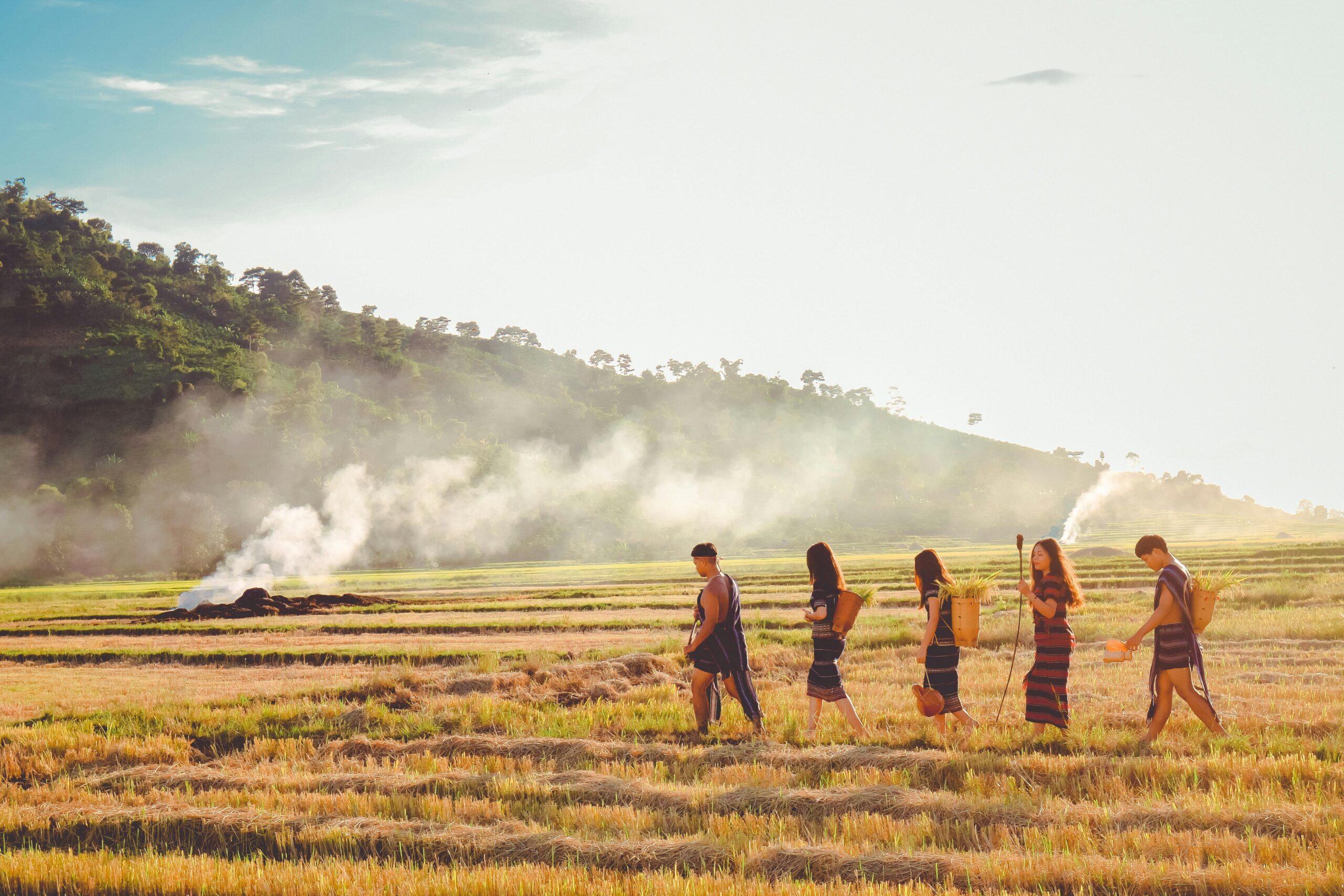Intrigued by the timeless methods of staying fit and healthy used by ancient civilizations? Let’s explore how our ancestors effortlessly maintained their weight and fitness levels without modern conveniences:
Living in Motion: The Active Lifestyle of Ancient Peoples
Daily activities such as hunting, gathering, and farming were the cornerstone of ancient life, keeping our ancestors in constant motion and ensuring they remained physically robust.

Hunting required endurance, agility, and strength as individuals tracked prey over long distances, navigated varied terrain, and engaged in physical exertion during the pursuit.
Gathering involved traversing landscapes to harvest seasonal fruits, nuts, and edible plants, requiring mobility, dexterity, and stamina. Additionally, farming demanded labor-intensive tasks such as tilling soil, planting crops, and harvesting yields, all of which involved repetitive movements and muscular effort.
These activities not only provided sustenance but also served as natural forms of exercise, allowing our ancestors to burn calories, build muscle, and maintain overall fitness levels without the need for structured workouts.
By integrating physical activity into their daily routines, ancient peoples cultivated resilience, strength, and endurance, enabling them to thrive in challenging environments and sustain vibrant health across generations.
Nature’s Bounty: Ancient Diets for Optimal Health
Ancient diets were rich in wholesome, nutrient-packed foods that served as the foundation of vibrant health and vitality.
From grains like quinoa and barley to a plethora of fruits and vegetables, ancient civilizations cultivated a diverse array of crops that provided essential vitamins, minerals, and antioxidants. Legumes such as lentils and chickpeas offered plant-based protein sources, while nuts and seeds delivered healthy fats and micronutrients. Fish and lean meats contributed additional protein and omega-3 fatty acids.
By consuming a balanced diet abundant in these nutrient-rich foods, our ancestors nourished their bodies and sustained optimal health, laying the groundwork for robust physical and mental well-being.
Listening to Your Body: Ancient Wisdom on Intuitive Eating
Our ancestors possessed a natural instinct for listening to their bodies, relying on hunger and satiety cues to regulate their eating habits and maintain a harmonious relationship with food.
Unlike modern society, where external factors often dictate meal times and portion sizes, ancient civilizations ate in response to genuine hunger signals. They savored each meal mindfully, stopping when they felt comfortably satisfied rather than continuing to eat out of habit or temptation.
By honoring these innate cues, our ancestors prevented overconsumption and avoided the pitfalls of modern-day overindulgence, fostering a balanced approach to eating that prioritized nourishment and respect for their bodies’ needs.
Functional Fitness: Ancient Workouts for Strength and Agility
Ancient peoples engaged in a wide range of functional exercises that were seamlessly integrated into their daily lives, contributing to their overall strength, endurance, and flexibility. Activities such as lifting heavy objects, whether it be stones for construction or buckets of water for irrigation, served as practical forms of resistance training.
Additionally, tasks like farming, hunting, and gathering involved dynamic movements that targeted various muscle groups and improved overall fitness. Running, walking long distances, and climbing were common modes of transportation and also doubled as cardiovascular workouts. Even simple activities like squatting, bending, and stretching while performing daily chores helped to maintain flexibility and mobility.
By embracing these natural movements as part of their daily routines, ancient peoples maintained robust physical health and functional fitness levels without the need for structured exercise programs or modern gym equipment.
The Importance of Rest and Recovery: Lessons from Ancient Lifestyles
In ancient cultures, the significance of rest, relaxation, and stress management was deeply ingrained in daily life as essential components for maintaining overall well-being and vitality.
Unlike today’s fast-paced society, ancient peoples valued moments of rest and relaxation, recognizing them as crucial for rejuvenating the mind, body, and spirit. Whether through communal gatherings, leisure activities, or periods of solitude, they prioritized time for unwinding and recharging. Stress management techniques such as meditation, deep breathing, and connecting with nature were commonly practiced to alleviate tensions and promote inner peace.
Furthermore, rituals and traditions centered around restorative practices, such as communal baths or therapeutic massages, served as avenues for physical and mental renewal. By honoring the importance of rest, relaxation, and stress relief, ancient cultures fostered a holistic approach to well-being that nurtured vitality and resilience for generations to come.
